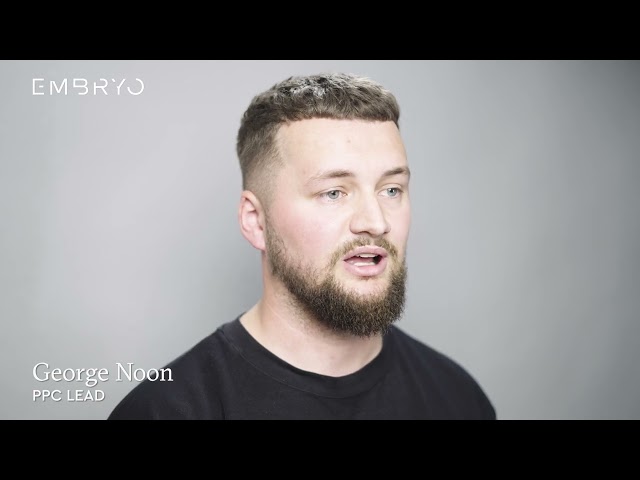Through Google Ad Grants, not-for-profit organisations can apply for a subsidisation to cover the cost of displaying ads aimed at raising awareness, attracting donors or connecting likemind people rather than selling a product or service. Essentially, it means that charities (and other businesses with a charity focus or affiliation) can run PPC campaigns through free bidding in order to reach a wider audience.
What are Google Ad Grants: Let’s talk numbers

Through their charity grant programme, Google offer up to around £7500 ($10,000) each month to put towards Google PPC advertising for companies not looking to make a profit from their advertising.
Using this model of advertising drives a larger audience to your organisation’s web page and allows you to achieve high rankings through brand identity by bidding on keywords specific to your organisation.
If you spend more than £7,200 (roughly) of this grant in two months of the previous 12 months, you could also be eligible for Google Grants Pro, which qualifies you for an additional £20,000 each month. In order to make this upgrade, your organisation needs to have met certain spending criteria, customer engagement rates and carry out regular maintenance of this account.
PPC vs SEO
If you’re already familiar with pay-per-click campaigns, chances are you’ve also got a pretty good idea of how to optimise your website for maximum views through search engine optimisation. While the latter is a great way to boost your site’s CTR (click through rates), this is more so because it’s a free strategy that charities can make use of to raise awareness of their organisation. An effective SEO strategy also sets a good standard for your overall website in terms of site mapping, internal and external linking, web auditing, and quality content more generally.
However, adverts tend to generate site traffic a bit quicker and are therefore a great option if you’re trying to grow engagement for an important cause, such as hiking 20 miles for Manchester Central Foodbank like we did here at Embryo.
Google AdWords is the most popular PPC system in the world and is a great tool to optimise your campaign and generate the most engagement with your organisation or cause.
Our PPC lead, George Noon, discusses how PPC and SEO can work together:
You’re a charity…how can you access Google Ad Grants?
The first step to accessing Google Charity Grants is getting approved by Charity Digital, the platform that sits between registered charities (which you’ll need to be to comply with Google’s eligibility criteria) and Google, in the UK.
You’ll also need a Charity Digital Exchange account and a Google account (both free to create) and then you’ll receive validation from Charity Digital to sign up to Google Ad Grants.
In their criteria, Google also specifies that your organisation’s website should have substantial content with proper security certifications. This is to ensure that your website is active, functional, and accessible for those who’ve clicked on your ads.
Unfortunately, if your charity is a government body, hospital, or any form of academic institution, unfortunately, you’re not eligible to apply.
Now access has been Grant-ed, how to make the most of Charity PPC
When it comes to PPC, it’s not enough to just throw Google’s money at ad campaigns and hope for the best. Instead, it’s important to have an understanding of your website’s traffic and ad performance so that you can make the most of your PPC budget.
If you’re totally new to PPC and don’t want to risk wasting your budget, the PPC platform AdWords Express could be a good option to start with as everything is mostly automated for ease, but you won’t see as high a ROI. AdWords on the other hand, allows you more control over when, where, and to who your ads are shown, but you might need a PPC expert to help you manage this for the most beneficial outcome.
If the topic of your charity isn’t particularly niche, for example, “foodbanks”, it’s important to carefully select which keywords you want to bid on so that your organisation is more likely to turn up prominently and frequently on SERPs. This is because other organisations and websites will turn up for the same search terms.
You can find help choosing the right keywords with online tools like Google Ads Keyword Planner which gives you relevant keywords as well as providing less expensive alternatives so that you can use your grant wisely.
As a charity, you might also benefit from the Responsive Search Ad format. These ads adapt to searches to show relevant text depending on who is searching for terms related to your organisation. This format allows you to submit multiple headlines and descriptions when creating your ads so that Google Ads can analyse performance and over time learn to produce the combination that harbours the best results.
Ad-ing to the PPC fun

Google Analytics is a really useful tool for tracking how well your ads are performing and how your conversion rates are doing once your ads are live. This allows you to assess which keywords bring in the highest traffic so that you know where your bids will make the most difference.
Making a difference
So there you have it, it turns out you really can make a difference in marketing. If you’re a charity looking to raise awareness of your organisation and grow your site traffic beyond organic visitors, the Google Charity Grant could help you make a difference. What’s more, a clever and strategic approach to PPC could help you make the most of it.
FAQs
Answered by Callum Leonard
Does Google only give grants to registered charities?
Yes, Google has a grant application process and you must be a registered charity.
How is the grant amount calculated?
The grant is consistent for everyone- $10,000 US dollars
Are there any limitations to what keywords I can bid on as a charity?
Single-word keywords are not permitted. You must use specific match types that limit your reach. You must also maintain high-quality scores and high CTR.














